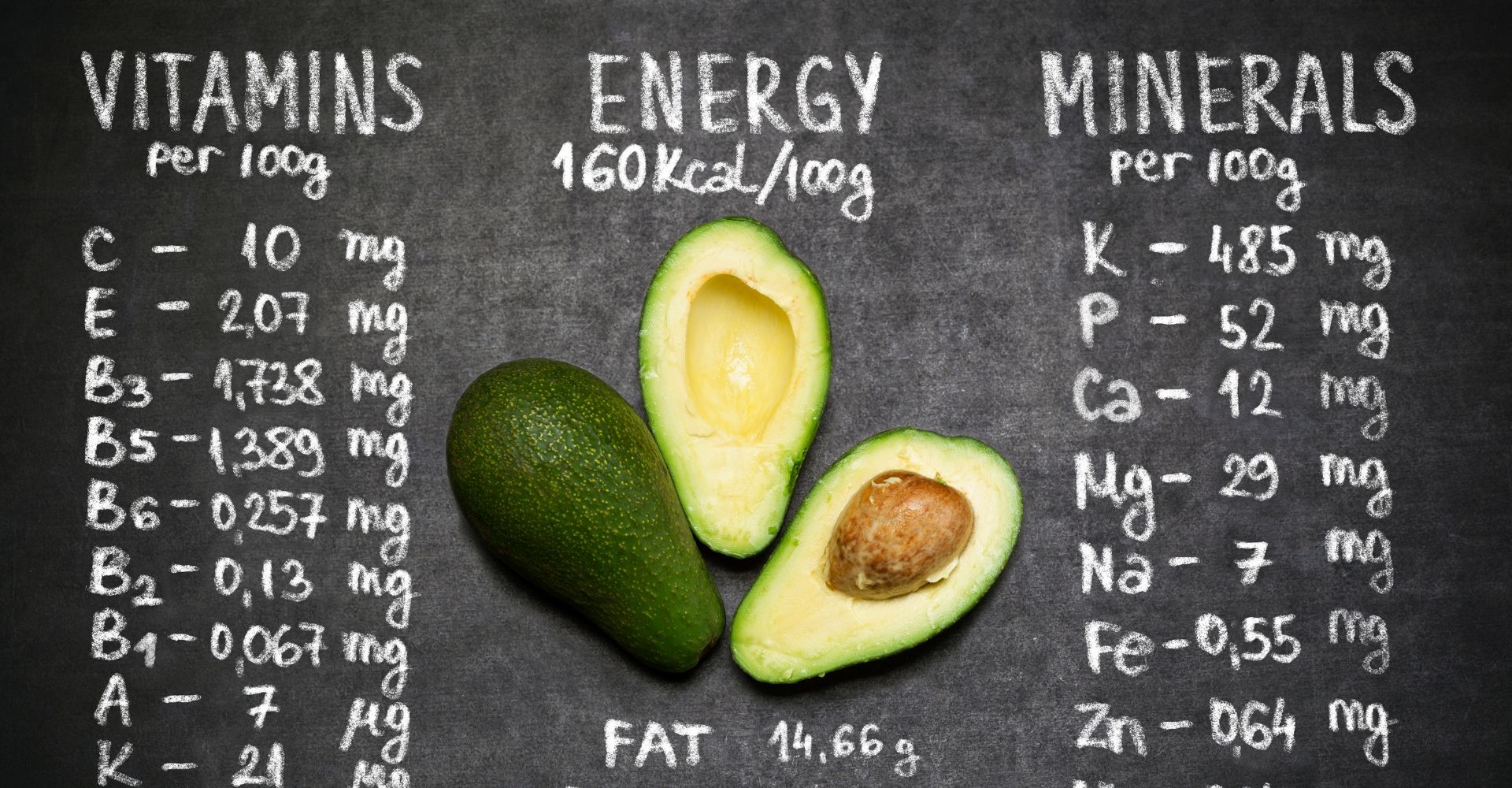
For a better and faster shopping experience, download app
Unkown

All about Minerals: What are they, and why are they important?
We all must have studied that minerals are an essential component in our bodies. Minerals are present in blood, bones, and tissues, and they are also required for the production of enzymes and hormones. However, do you know why they are so vital? From where can you get minerals?
And what happens when there's a deficiency of minerals in your body? Knowing about different types of minerals and what they do will help you ensure that you are getting enough of them as required.
So let's delve further into this and learn everything there is to know about minerals.
What are minerals?
Minerals are nutrients that aid in the development and operation of our bodies. They are necessary for optimum health. The body uses minerals for various purposes, including the normal functioning of muscles, bones, brain, and heart. We need essential minerals like calcium, iron, and potassium on a daily basis.
What are the different types of minerals?
There are two types of essential minerals necessary for human health: major or macrominerals and trace or microminerals.
The primary minerals that are used and stored in significant quantities in the body include calcium, phosphorus, potassium, chloride, magnesium, sodium, and sulfur. These minerals are referred to as macrominerals. It is essential for the proper functioning of bones, muscles, the heart, and the brain.
The second type of aforementioned minerals is just as vital for our health as macrominerals although we need them in smaller quantities. Minerals in this category include chromium, fluoride, copper, iodine, molybdenum, selenium, iron, manganese, and zinc. These minerals are referred to as trace minerals. Except for chromium, all other trace minerals are integrated into enzymes or hormones necessary for physiological functions (metabolism) whereas chromium aids the body in maintaining appropriate blood sugar levels.
Read on to find out the distinct functions and facts about minerals and why they are important for the human body.
Why are minerals so important?
The human body requires both macrominerals and microminerals. Distinct minerals serve different functions in the body. According to Dr. Bruce Bistrian, chief of clinical nutrition at Beth Israel Deaconess Medical Center, each mineral is involved in hundreds of bodily activities. It may only take a trace amount of a mineral, but having too much or too little might disturb the body's delicate equilibrium.
They transport oxygen and carbon dioxide and are vital components of our DNA and RNA; Minerals, like vitamins, are essential components for efficient metabolism. They also serve to maintain acid-base balance, are found in bones and teeth, are necessary for proper development, and are found in glands. They are required for the heart to function normally. They are also required for the prevention of certain illnesses. Furthermore, certain vitamins and minerals contain antioxidants, which help to prevent oxidation in the body, decreasing the risk of inflammation and cancer.
Given below are the distinct functions and importance of each of the minerals.
Macrominerals
|
Minerals |
Importance |
|
Sodium |
This is required for appropriate fluid balance and muscular contraction nerve transmission. |
|
Chloride |
It aids in the equilibrium of fluid within and outside of your cells. It also aids in the maintenance of normal blood pressure, blood volume, and the pH of your bodily fluids. |
|
Potassium |
It aids in the regulation of fluid balance, muscular contractions, and nerve impulses. It is required for all cells to operate normally. |
|
Calcium |
Important for bone and tooth health; aids in muscle relaxation and contraction; aids in nerve function, blood coagulation, blood pressure management, and for a healthy immune system. |
|
Phosphorus |
Phosphorus is a mineral that accounts for 1% of an individual's total body weight. It is the body's second most prevalent mineral. It may be found in every cell of the human body. The bones and teeth contain the majority of the phosphorus in the body. It has a significant impact on how the body utilizes carbs and lipids. It is also required for the body to produce protein for cell and tissue development, maintenance, and repair. Phosphorus also aids in the production of ATP, a chemical that the body consumes for energy and storage. |
|
Magnesium |
Magnesium is an essential element that participates in over 300 enzymatic activities in the human body. Its several roles include assisting with muscle and neuron function, blood pressure regulation, and immune system support. |
|
Sulfur |
Sulfur is required by your body to produce and repair DNA, as well as to protect your cells from damage that can lead to serious illnesses such as cancer. |
Microminerals
|
Minerals |
Importance |
|
Iron |
Iron is a component of hemoglobin, a protein that transports oxygen from our lungs to the rest of our bodies. It aids in the storage and use of oxygen through our muscles. Iron is also found in many proteins and enzymes and is required for energy metabolism. |
|
Zinc |
It is required for the synthesis of genetic and protein material, has a role in taste perception, proper fetal development, wound healing, normal growth, and sexual maturation, and plays a vital role in the immune system. |
|
Iodine |
Iodine is required by the body to produce thyroid hormones. These hormones regulate the metabolism of the organism. The body also requires thyroid hormones for healthy bone and brain development throughout pregnancy and infancy. |
|
Selenium |
Selenium is a mineral that plays an important part in DNA synthesis, thyroid metabolism, as well as protecting cells from oxidative damage and assisting the body in the production of specific proteins known as antioxidants. |
|
Copper |
It plays a crucial function in the formation of red blood cells as well as the maintenance of the immune system and nerve cells. |
|
Manganese |
Manganese helps with a variety of biological activities, including the metabolism of amino acids, glucose, cholesterol, and carbohydrates. It also aids in bone growth, blood coagulation, and the reduction of inflammation. |
|
Fluoride |
Involved in the development of teeth and bones; aids in the prevention of tooth decay. |
|
Chromium |
It collaborates with insulin to control blood glucose levels. Chromium aids in the digestion of lipids and carbohydrates and is necessary for brain function and other bodily activities. |
|
Molybdenum |
It is required for the functioning of certain enzymes. |
What happens if you don't get enough minerals?
When your body does not receive or absorb the appropriate quantity of a mineral, you have a mineral deficit. A deficit generally develops gradually over time and can be caused by a variety of factors. Some of the most frequent reasons include an increased requirement for the mineral, difficulties absorbing the mineral from food, or a shortage of the mineral in the diet. Mineral deficiencies can cause a number of health issues, including weak bones, tiredness, and a weakened immune system.
Here are several minerals (macro and micro) and what can happen if you don't get enough of them.
Macrominerals deficiency
- Sodium - Lack of sodium may cause headaches, confusion, altered personality, weakness, fatigue, vomiting, and muscle cramps.
- Chloride - Lack of chloride can cause Addison's disease, which is a disorder in which your adrenal glands fail to generate enough of certain hormones. It can cause a number of symptoms such as weakness, disorientation, weight loss, and dehydration. Also, chloride deficiency can cause heart failure and lung diseases.
- Potassium - Lack of potassium causes muscle cramps or a feeling of weakness, paralysis, heart rhythm irregularities, kidney issues, etc.
- Calcium - Long-term calcium deficiency can result in osteoporosis or low bone mineral density. Muscle cramps, tingling in the fingers, numbness, tiredness, abnormal heart rhythms, and low appetite are also some of the symptoms of calcium deficiency.
- Phosphorus - Loss of appetite, anxiety, bone pain, brittle bones, stiff joints, weariness, uneven breathing, irritability, weakness, numbness, and weight fluctuation are all symptoms of phosphorus insufficiency.
- Magnesium - Diabetes, poor absorption, persistent diarrhea, celiac disease, and hungry bone syndrome are all symptoms of magnesium deficiency.
- Sulfur - Arthritis, acne, convulsions, depression, gastrointestinal disorders, memory loss, rashes, and even delayed wound healing can all be caused by a sulfur deficit in the body. Obesity, heart disease, Alzheimer's, and chronic tiredness may also be exacerbated by a lack of sulfur in the body.
Micromineral deficiency
- Iron - Iron deficiency progresses slowly and might result in anemia. Iron-deficiency anemia symptoms include fatigue and weakness. Slow social and cognitive development in children may manifest as symptoms as well.
- Zinc - A lack of zinc might result in a loss of appetite, scent, or taste. Other zinc deficiency symptoms include decreased immune system function and delayed development.
- Iodine - In babies and children whose mothers were iodine deficient during pregnancy, iodine insufficiency can cause hypothyroidism, thyroid hypertrophy, and intellectual impairments.
- Selenium - Lack of selenium causes male and female infertility, fatigue, muscle weakness, mental haze, hair loss, and compromised immune system.
- Copper - A deficiency of copper may cause anemia, neutropenia, paleness, and osteoporosis.
- Manganese - Undernutrition, weight loss, muscle mass loss, hollow cheeks, sunken eyes, bloated stomach, as well as dry hair and skin. Manganese deficiency could delay wound healing and cause fatigue.
- Fluoride - Lack of this mineral can cause an increase in dental cavities as well as osteoporosis.
- Chromium - Lack of chromium can cause a variety of symptoms, including those that are similar to diabetic symptoms, such as weight loss, decreased glucose tolerance, neuropathy, anxiety, exhaustion, and muscular weakness.
What are the recommended mineral intake requirements?
It is critical to fulfilling the required mineral intake every day in order to meet your nutritional needs. The recommended daily intake (RDI) of the minerals is presented below, taking into account different aspects such as age, gender, and per-day needs.
Recommended Daily Intake (RDI)
(in milligrams per day)
Sodium (Na)
- Age 19-50: 1,500
- Age 51-70: 1,300
- Age 71 and up 1,200
Chloride (Cl)
- Age 19-50: 2,300
- Age 50-70: 2,000
- Age 70 and older: 1,800
Potassium (K)
- 18 years and above: 4700
Calcium (Ca)
- Age 19-50: 1,000
- Women age 51+: 1,200
- Men age 71+: 1,200
Phosphorus (P)
- All ages: 700
Magnesium (Mg)
- Men aged 19-30: 400
- Men aged 31 and up 420
- Women aged 19-30: 310
- Women aged 31 and up 320
Sulphur (S)
- Men & Women: 800-900
Iron (Fe)
- Men: 8
- Women aged 19-50: 18
- Women age 51 and up 8
Trace Minerals
Zinc (Zn)
- Men: 11
- Women: 8
Iodine (I)
Men & Women: 0.15
Selenium (Se)
Men & Women: 0.055
Copper (Cu)
Men & Women: 0.9
Manganese (Mn)
- Men: 2.3
- Women: 1.8
Fluoride (F)
- Men: 4
- Women: 3
Top 14 Fruit and Veggies that are Mineral-rich
- Asparagus
- Spinach
- Summer squash
- Broccoli
- Cauliflower
- Mushrooms
- Carrots
- Beetroots
- Eggplant
- Avocado
- Blueberries
- Peers
- Grapefruit
- Guava
Wrapping Up!
Minerals are vital for the normal functioning of the human body; however, you must also note that excessive amounts of minerals might also interrupt the body’s normal functions. So, stay informed and protect yourself from the various health issues that might be caused by lack or excess amount of minerals.
White to creamish compact curd with closely packed florets, offering a mildly earthy and nutty vegetal flavor
- 1 Pc (400-600 Gms each)
- 2 pc x (400-600 Gms each)
₹44
Handpicked, freshly prepared florets for convenience & zero wastage
- 250 Gms
- 500 Gms
₹176
Handpicked, freshly cut for convenience & zero wastage
- 250 Gms
- 500 Gms
₹45
Large sized, deep green skin with creamy flesh, buttery and nutty taste
- 1 Pc (180+ gms)
- 2 Pc (180+ g per pc)
₹131
Plump, deep blue with a succulent & sweet-tart taste
- 125 Gm
- 2x (125 Gms)




















![Spinach [Palak]img 2 Spinach [Palak]img 2](https://im.pluckk.in/unsafe/1053x0/uploads/new_sku_designs_v3/111011298AL/2.jpg)


![Spinach [Palak]img 1 Spinach [Palak]img 1](https://im.pluckk.in/unsafe/1053x0/uploads/new_sku_designs_v3/111011298AL/1.jpg)














![Beetroot [Chukandar]img 3 Beetroot [Chukandar]img 3](https://im.pluckk.in/unsafe/1035x0/uploads/new_sku_designs_v3/111111140AL/3.jpg)
![Beetroot [Chukandar]img 1 Beetroot [Chukandar]img 1](https://im.pluckk.in/unsafe/1032x0/uploads/new_sku_designs_v3/111111140AL/1.jpg)
![Beetroot [Chukandar]img 2 Beetroot [Chukandar]img 2](https://im.pluckk.in/unsafe/1035x0/uploads/new_sku_designs_v3/111111140AL/2.jpg)
![Premium Avocado Hass [Imported]img 1 Premium Avocado Hass [Imported]img 1](https://im.pluckk.in/unsafe/1053x0/uploads/new_sku_designs_v3/241224370AL/1.jpg)


![Guava Thai [Indian]img 1 Guava Thai [Indian]img 1](https://im.pluckk.in/unsafe/1053x0/uploads/new_sku_designs_v3/231211215AG/1.jpg)





